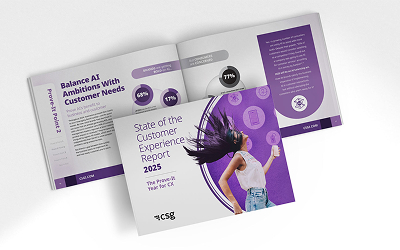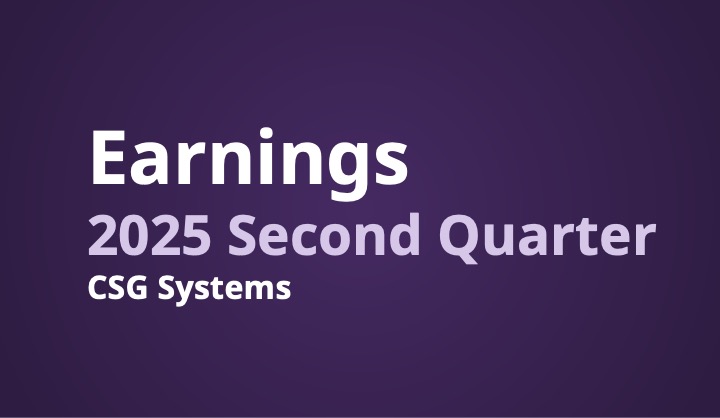CSPs Can Increase Revenue Using AI
Artificial intelligence (AI) has tremendous potential to transform the telecommunications industry. We’ve previously discussed how communication service providers (CSPs) can use AI to improve network performance, customer experience and operational efficiency.
When used correctly, AI can also help CSPs increase revenue generation. One survey of 400 telecom professionals worldwide revealed that 73% of respondents who are using AI saw increased annual revenue, and 80% saw reduced costs. However, CSPs must proceed with caution to be sure they’re using AI (especially generative AI) legally and ethically.
How AI Can Help CSPs Increase Revenue
AI may be able to help CSPs recoup their 5G investment. In addition to saving money through automating operations, AI can also help increase revenue.
Targeted marketing and customer segmentation. AI algorithms improve customer segmentation by analyzing customer data to create more targeted segments. Better segmentation means better personalization of marketing campaigns—and more sales.
AI-powered revenue assurance and fraud prevention. ML helps prevent revenue leakage by analyzing contracts, identifying discrepancies between contract terms and billing history. This speeds up the reconciliation process and identifies lost revenue. By preventing fraud, AI can help CSPs save millions of dollars. The Communication Fraud Control Association estimated that global telecom revenue loss due to fraud was 2.22% in 2021, resulting in $39.8 billion lost.
Innovations in product and service offerings based on market trends. Generative AI algorithms can analyze customer preferences, behavior patterns and past interactions to provide personalized product recommendations. By understanding individual customer needs and preferences, CSPs can offer tailored product suggestions that resonate with customers, leading to increased customer satisfaction and sales. If analytics reveal that many consumers are buying an iPhone 13 with a cover and 10G data, it makes sense to sell those products as a bundle. Enterprise clients’ bundles are more complex (perhaps including security), but the same principle applies. AI allows CSPs to anticipate enterprise customers’ capacity needs and provide better bundles, reducing frustration and building customer loyalty. For example, if AI predicts that the selected capacity won’t be sufficient for the number of employees and locations, CSPs can offer a bundle more tailored to that specific customer.
A Word of Caution
ChatGPT and other generative AI programs are in their infancy, and people are still learning how to use them appropriately and responsibly. CSP leaders must consider the legal and ethical ramifications of using generative AI.
CSPs should think twice about using open source AI (i.e., AI software libraries and algorithms are freely available to developers). Any data entered into the AI becomes part of the model and is accessible to anyone using that algorithm.
CSPs should be cautious when:
- Using generative AI to write computer code. That code may have been leaked (intentionally or not) and may be subject to technical copyright protections.
- Putting their own code or data into the generative AI. Anything you enter into ChatGPT becomes available for public consumption. Samsung employees entered confidential information into the ChatGPT model, and that data is now part of the AI’s learning database.
- Using generative AI to write content without verifying the information. Generative AI algorithms are only as good as the data they are trained on. If the data is not diverse, accurate and up to date, the results are likely to be incorrect or biased. OpenAI acknowledges this limitation, stating that “ChatGPT sometimes writes plausible-sounding but incorrect or nonsensical answers.” People who use ChatGPT to produce blogs or other content need to check the sources and confirm that the information is current and accurate.
Ethical considerations in AI implementation. CSPs have access to vast amounts of personal, sensitive data (e.g., financial and health data, spending habits, where you live, who your friends are). If not properly secured and protected, this data can be vulnerable to unauthorized access, data breaches, or cyberattacks. Such breaches can result in the exposure of sensitive personal information, leading to privacy violations and potential harm to individuals. Consumers may be denied car insurance based on their driving history or denied health insurance because of their lifestyle habits—all information that is available to CSPs and the hyperscalers. Businesses may pay higher insurance rates or be denied access to funds based on private financial data.
Data privacy and security. To protect personal data and/or confidential company data, CSPs should NOT enter that data in a generative AI. Any data entered into an open source AI (such as ChatGPT) may be shared.
Staff reskilling needs to include training on the impact of AI on operations, the risks of accidentally sharing confidential data, and the ethical and legal ramifications of using AI.
When it’s used correctly, AI can help CSPs increase revenue, streamline operations, improve network optimization and enhance CX.
CSG SaaS platforms let you leverage the revenue-boosting potential of AI/ML while navigating its risks.











